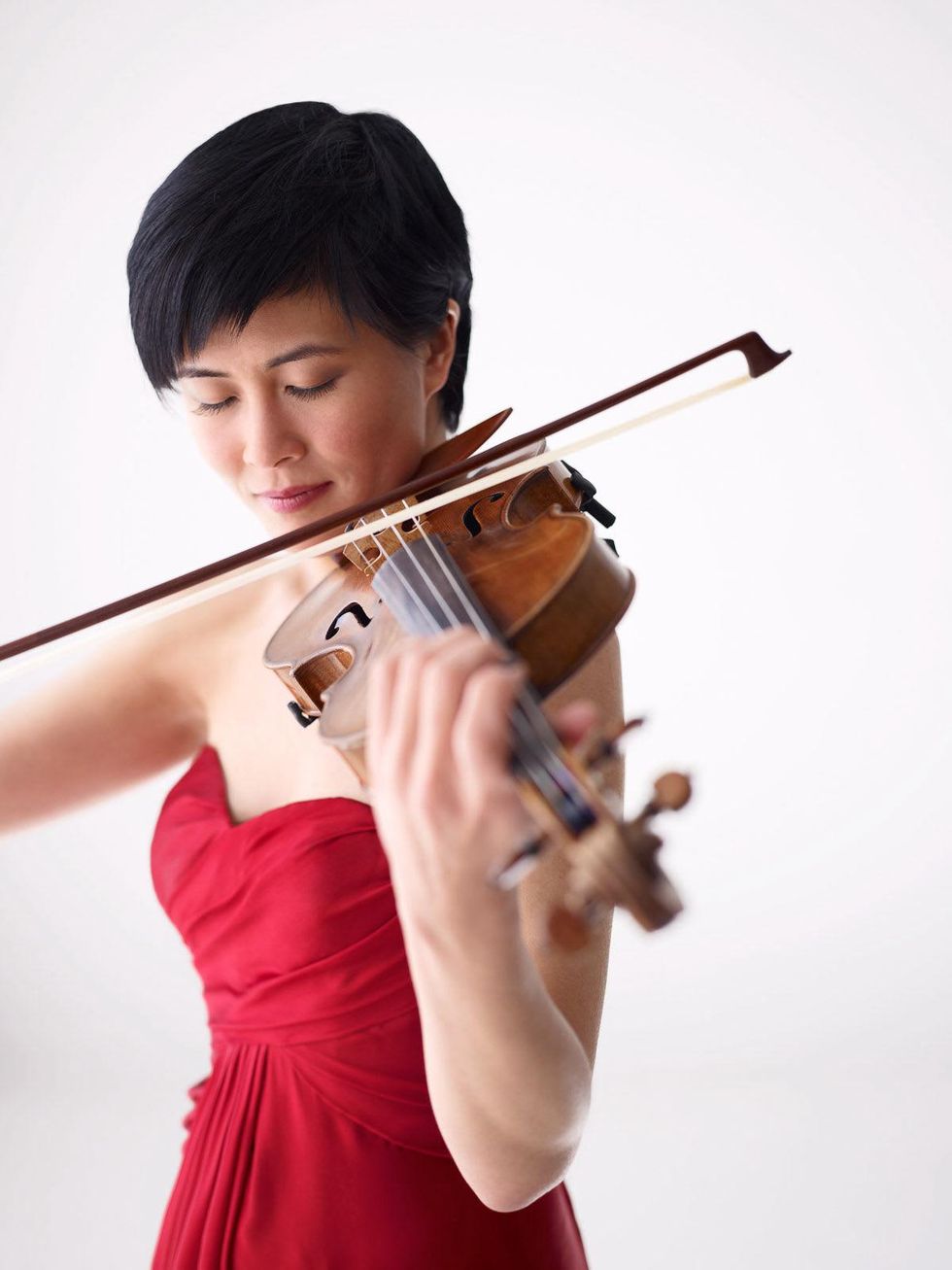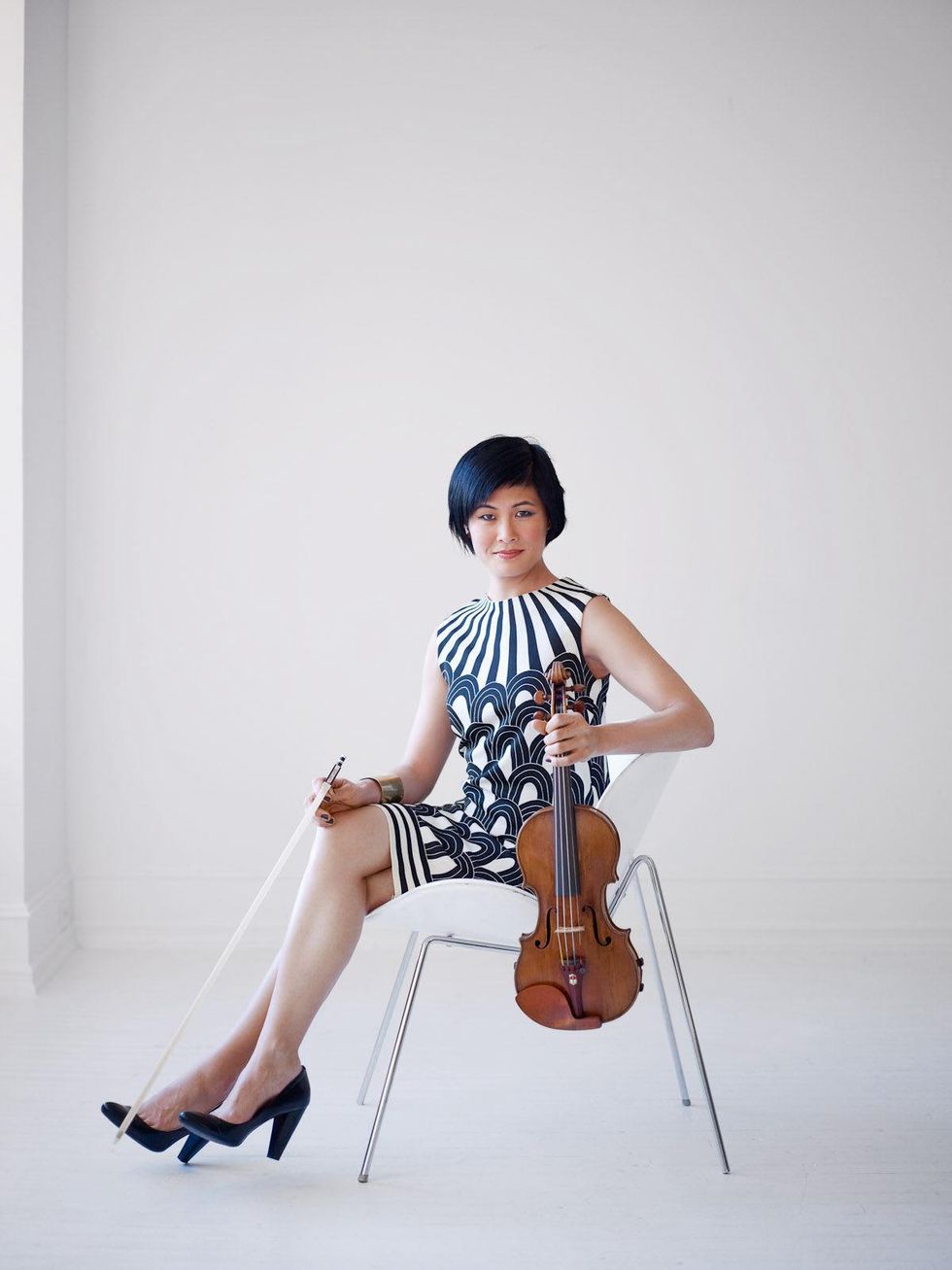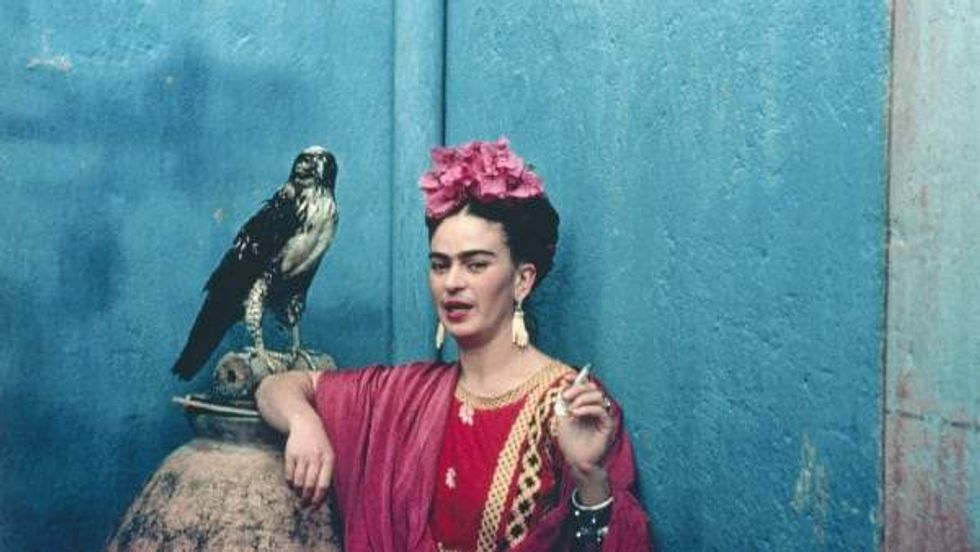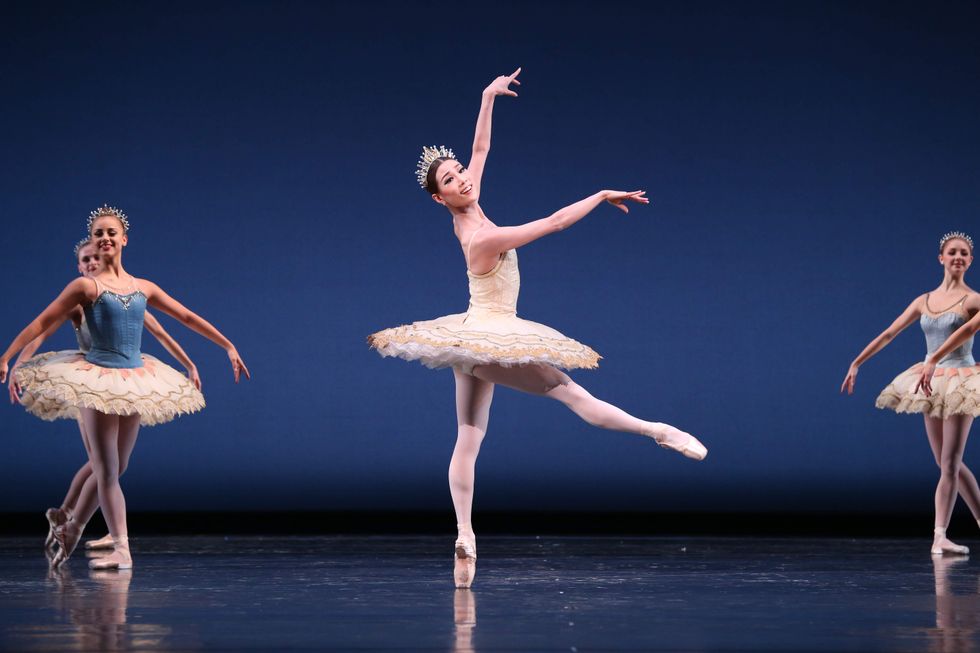The CultureMap Interview
Going naked for Bach: Hot violinist Jennifer Koh reveals her intimate, private musical journey
Most people would say that violinist Jennifer Koh took a big risk when she decided against a traditional solo career.
Koh had all the makings or a classical music mega star: Her debut with the Chicago Symphony in 1988 followed a trend in cute, young violinists tearing up the scene, and she took a silver medal in the International Tchaikovsky Competition in 1994, a year when no one was awarded the first prize.
Her career could have been teeming with engagements where she would play flashy showpieces by Tchaikovsky, Paganini, Brahms and Wieniawski, but she listened a little voice inside her head which led her down a different path.
Today, she's risen as a supple performer who can tackle intimate, salon type recitals and muscle repertoire with the world's finest orchestras.
Koh will complete the set of J.S Bach's Sonatas for Solo Violin in her second concert presented by Da Camera of Houston, set for 7:30 p.m. Tuesday at the Menil Collection. CultureMap chatted with the Korean American violinist on the phone and had a tête-à-tête about fashion, Bach and doing drag for Einstein.
CultureMap: When I think of Bach, I think of classical music's Shakespeare. I think of melange of academia, history, seriousness and playfulness. But even if a listener doesn't know anything about Bach, his background or the music, there's still something to glean from just listening.
I am interested in how you think of Bach the composer and these particular solo works.
Jennifer Koh: There's something so unique about Bach's music, especially the solo violin sonatas and partitas. Considering that these were never commissioned works, so Bach wrote them out of a creative need to express himself, that's quite significant.
They were also written over a long period of time, 17 years. I feel like the sonatas and partitas are his personal, intimate, private musical journal. There's something naked about them, and by naked, I mean human. They represent the part of us that feels vulnerably naked when exposed. In this music, more than other compositions than I've encountered by Bach, you find incredible honesty, purity, frailty and visceral emotions. That's just astounding — and it blows me away.
CM: Do you have a special routine when preparing to perform them?
JK: To go through a process of preparation —to perform Bach the way I believe his music should be played — I have to put myself in that vulnerable place. It can be incredibly painful. You have to peel away any layers and protective shells you may have built up as an adult. When I am preparing for solo Bach concerts, it's like I'm preparing to take on the world without skin on.
"There's something naked about them, and by naked, I mean human."
Think of a baby's face and how it changes emotions quickly, sometimes faster than once per second. The baby might say: I'm happy, I'm sad, that's funny, I'm upset. But as adults, we learn not to do that. We create shells so we can interact with each other socially — and I can't be there, physically or emotionally, when Bach is at stake.
I have to go into an almost alternate existence to be able to play Bach. I can't interact with other people — and that feels crazy.
CM: You shut yourself off from the world?
JK: When I did the entire set of sonatas and partitas for the first time, I didn't leave my apartment for two weeks. It's an intense process. It's not only about the technical aspect. It's about being able to emotionally communicate the pieces.
I remember that I was worried that I couldn't do this type of concert in any other city than where I live because I had to go through this. But I've figured things out since then.
CM: As I read the recent review of your debut with the New York Philharmonic and Lorin Maazel, when you performed Witold Lutoslawski’s Chain 2: Dialogue for Violin and Orchestra, the showpiece got me thinking.
Artists who specialize in early music often have a penchant for modern compositions. Is that you? How does your preparation process change for contemporary repertoire?
JK: I just like good music. It doesn't matter when it was written. I wouldn't even say good music — because who's to say what's good and what isn't? I play music that I find compelling.
With well-known composers of the past, I've lived with their music. But with compositions of Ligeti, Lutoslawski or Saariaho, I didn't grow up with their works. I didn't play their pieces from age 3. In either case, I immerse myself totally in who they are as artists and study many of their scores.
"I am eating Bach, I am dreaming Bach — and that's something beautiful to me."
I study not just their violin music or the piece I am supposed to play. I study all their symphonies, all their chamber music, orchestral pieces, electronic music and solo pieces for other instruments. It's important for a composer to be a part of you so the music just flows organically in performance.
CM: How do you decompress from all this?
JK: When I am preparing for Bach, everyday is Bach. I am eating Bach, I am dreaming Bach — and that's something beautiful to me. When I wake up, my arms are tired because I've been dreaming of playing Bach. I typically don't pay attention to anything else.
Bach is like an automatic diet because I think my brain is burning so many calories — because I don't exercise much these days. I might say I am on a diet, but I'll say it while eating two pieces of chocolate cake. I love food.
I do yoga and meditate. I started doing both maybe eight years ago or so. Yoga and meditation help a lot with focus. Bach is all about focus, and both help with that.
CM: You get the sense like a pretty hip gal with fashion sense. Is what you wear aligned with the music you are performing?
JK: Can you tell my publicist that you think I'm fashion conscious? (laughs).
This is pretty funny: When we rehearsing for Einstein on the Beach (Philip Glass) in Ann Arbor — you know, a college town — we were holding 13-hour rehearsals each day, and we would take small breaks for coffee. You can't take off your full-stage makeup, wig, mustache because it takes an hour-and-a-half to get back in costume.
CM: Right, you were doing drag — sort of. You represented Einstein on stage, right?
JK: Right.
On the inside I felt the same, like a girl, who I've always been.
"I was never a high heels girl with blown up, big hair and makeup."
One time that I took a break, this guy who was holding the door for all these girls walking through. Because I felt like a girl on the inside, I assumed he would continue to hold it for me, but he slammed the door in my face. It was fascinating to see how people responded to me in costume.
Being in the costume was interesting. I don't know if Einstein was handsome or dashing when he was young. What I know is that I had to wear baggy shirts, dark pants and suspenders. After playing Einstein all I wanted to do is wear skirts and dresses — and all my press photos were taken right after Einstein.
I am usually a jeans and sweater person. Going through Einstein made me realize that I love being female, even though I hadn't identified with femininity in the very traditional sense before. I was never a high heels girl with blown up, big hair and makeup.
Now, I want to wear heels and dresses. Though I still never perform in heels.
CM: Do you feel like you are going to tip over?
I was never able to balance in heels in order to be able to play. Just flats.
___
Da Camera of Houston presents Jennifer Koh in "Bach for Solo Violin, Part II" on Tuesday, 7:30 p.m., at The Menil Collection. General admission tickets are $35 and can be purchased online or by calling 713-524-5050.
Jennifer Koh will complete the set of J.S Bach's Sonatas for Solo Violin in her second concert presented by Da Camera of Houston, set for 7:30 p.m. Tuesday at the Menil Collection.







